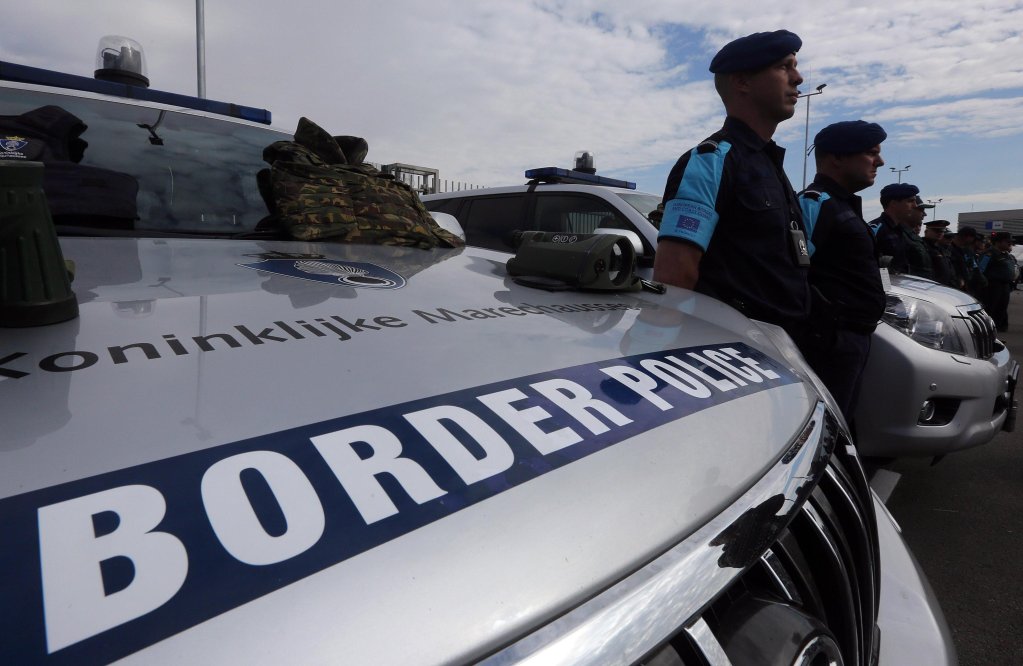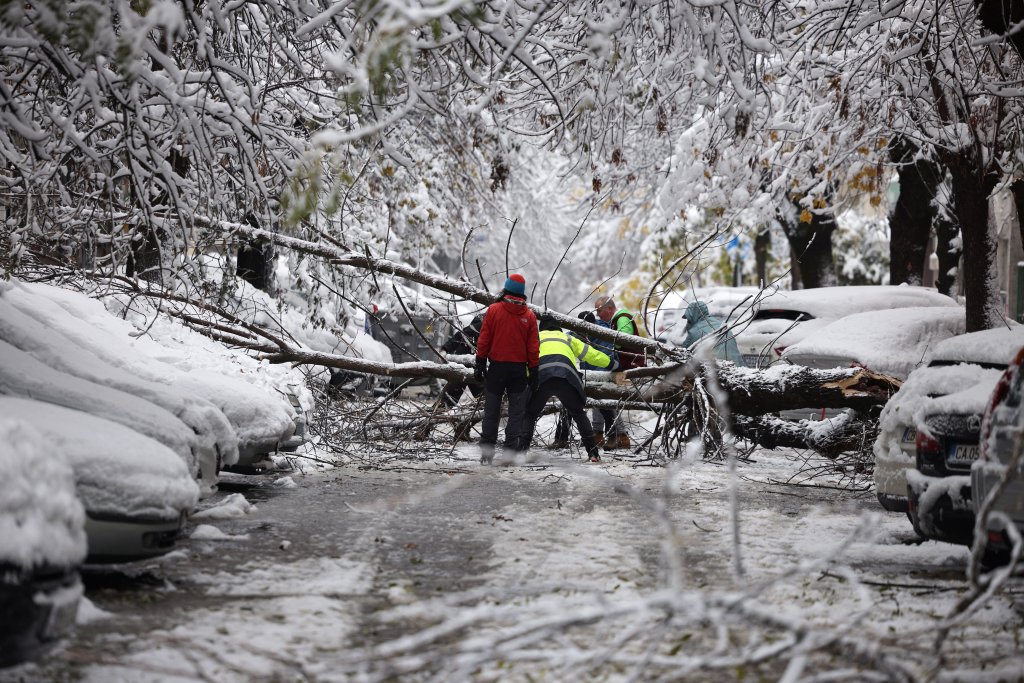Three Egyptian teenagers lost their lives to hypothermia near Bulgaria’s eastern border in December. Activists allege deliberate neglect by Bulgarian border police, sparking renewed scrutiny over the EU's border policies.
At the end of last year, three Egyptian minors succumbed to the freezing temperatures in Bulgaria's forests, as activists allege border authorities obstructed rescue attempts.
In the early hours of December 27, human rights activists in Bulgaria were alerted to three Egyptian minors lying unconscious in the snow near Burgas, on the east coast of the country. The boys, identified as Ali, Samir, and Yasser, aged 15, 16, and 17, were reported to be in critical condition.
The activists say they also received videos of the youths and accurate GPS coordinates. When the two activist groups, Collettivo Rotte Balcaniche, based in Burgas, and No Name Kitchen (NNK), based in Harmanli (about two hours away), repeatedly called the 112 emergency line, Bulgarian authorities allegedly ignored their requests for help.
Read AlsoMigrants deprived of their 'fundamental human rights' in Bulgarian detention centers
Blocked rescue attempts
After receiving the calls, the two groups immediately headed toward the coordinates, but when they reached the area, they were reportedly obstructed by Bulgarian Border Police. The two groups rushed to the coordinates but were blocked by Bulgarian Border Police upon arrival.
Despite using different routes neither group was able to reach the minors. They claim that police stopped their vehicles, preventing the teams from reaching the youths. In the attempt to reach the first boy, the volunteers from Collettivo reported being stopped three times by border police, preventing their rescue efforts.

During the remaining hours of the night, Collettivo's team says it was physically escorted towards Burgas and effectively forced to abandon their rescue attempt. They then checked three different hospitals in Burgas for any notification of the youths being transported there, but no results were found.
Read Also'The border guards beat migrants': How EU border pushbacks are becoming banalized
Bodies in the snow
The following day, on December 28, the teams returned to the same coordinates and discovered the bodies of the three boys, who had likely succumbed to hypothermia.
When rescue teams found the first minor dead, "boot prints and dog paw marks were found surrounding the body," NNK asserts that this shows authorities had not just ignored emergency calls and obstructed rescue attempts, but had been present and "chose not to assist or recover the body."
Later that day, the second minor’s body was discovered, 32 hours after the first alert. On December 29, the third minor was found -- 57 hours after the initial reports -- and severely damaged by animals.
The groups have stated that the authorities’ failure to respond and the deliberate obstruction of the rescue teams are believed to have contributed directly to the deaths of the minors.
Read AlsoAid workers condemn violence against migrants in Bulgaria
'Not an isolated case'
"This is not an isolated case," NNK wrote on social media. "For years, Bulgarian Border Police have ignored emergency calls, denied medical assistance to people on the move, and subjected them to violence and pushbacks, even in life-threatening situations."
NNK accuses Bulgarian authorities of neglect, alleging that their actions contributed to preventable deaths.
"Our teams themselves face constant harassment and intimidation. Activists have been detained, interrogated, forced to carry bodies, and even transported in the trunks of police cars," NNK stated on Instagram.
An activist from the Italian group Collettivo Rotte Balcaniche Alto Vicentino, identified by the initial P. told Balkan Insight that the police bullied him into carrying one of the bodies to their car. "I refused but they started to be threatening ...I wasn’t in a position to refuse, so I did it," he said. "I think they just wanted to intimidate us and create trauma."
NNK claims these deaths stem from border policies that fail to adequately protect migrants in life-threatening conditions.
Seb, NNK activist in Bulgaria, shared his testimony of the thwarted rescue attempts on social media.
"This was no accident. These preventable deaths are calculated and deliberate, they are political decisions and policies made by the EU in its pursuit of border control and exclusion," Seb stated in a video on Instagram.
The Bulgarian Border Police have denied these allegations of deliberate neglect. They acknowledged receiving three messages about an emergency situation with specific coordinates from the Bulgarian NGO Mission Wings in the early hours of December 27 (between 2 am and 7.35 am). However, they stated that when officers arrived, they were unable to find the people in question, according to Balkan Insight.
The police claimed their search at the provided coordinates yielded no results. Stating that they "reacted immediately to all received signals but the alerts from December 27 featured wrong or misleading information."
Responding to Balkan Insight, the Bulgarian police confirmed that the bodies were found on December 28 and 29, but insisted they were "in different locations" from the ones provided by the activists on December 27.
Read AlsoThree teachers 'arrested in Bulgaria for rescuing migrants'
Bulgaria tightens border security
On January 1, Bulgaria joined the Schengen zone, along with Romania, which has vowed to keep its border controls strict after its long-awaited full accession. The country now shares a section of an external EU border with Turkey.
Balkan Insight reported that Interior Minister Atanas Ilkov emphasized that Bulgaria’s responsibilities to secure borders will continue, "we will not ease up on what we have done in terms of improvements on the Bulgarian-Turkish border. On the contrary: we are strengthening our capacities."
Bulgaria has been under significant pressure from fellow EU member states, over its ability to manage migration. Border security issues were among the key concerns that delayed Bulgaria’s accession into the Schengen zone, with both Austria and the Netherlands vetoing full membership.

While this led to increased security and staff, Bulgaria’s border control, and its treatment of refugees and migrants seeking asylum, have remained the subject of criticism.
Responding to Balkan Insight, the Border Police told the paper that "an inhumane and degrading attitude to the citizens and people found to have illegally crossed the border is not accepted."
Read AlsoSchengen zone expands, but border checks persist across EU
